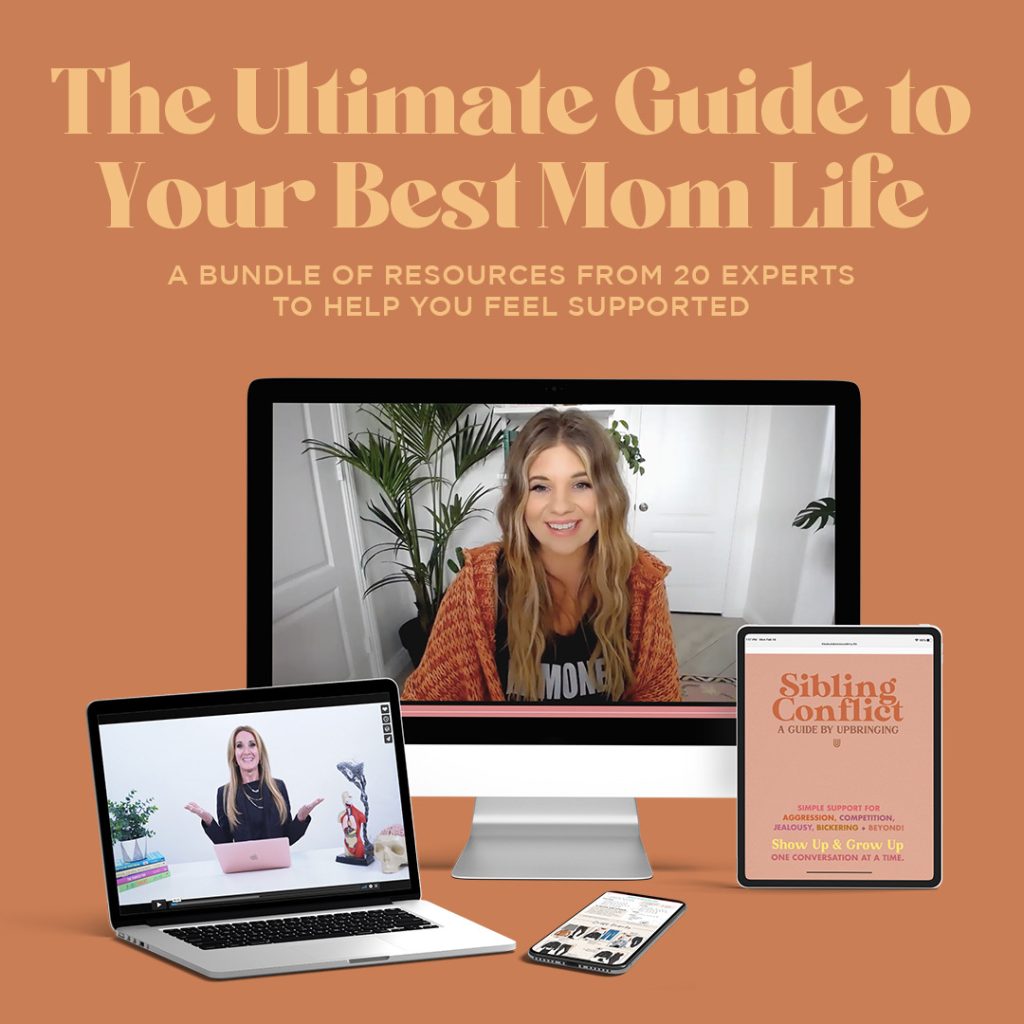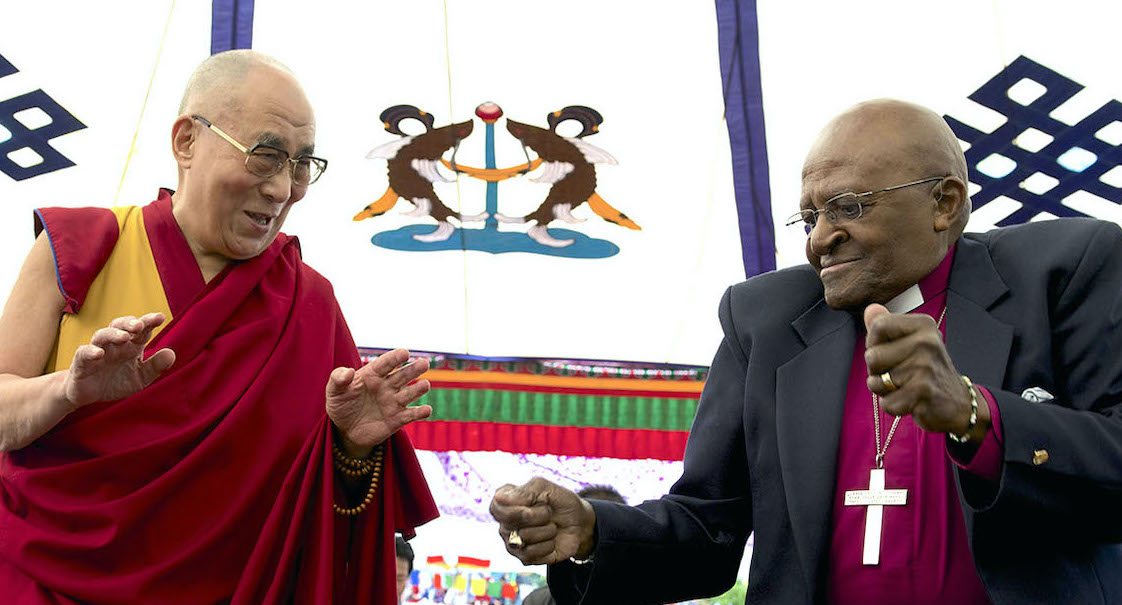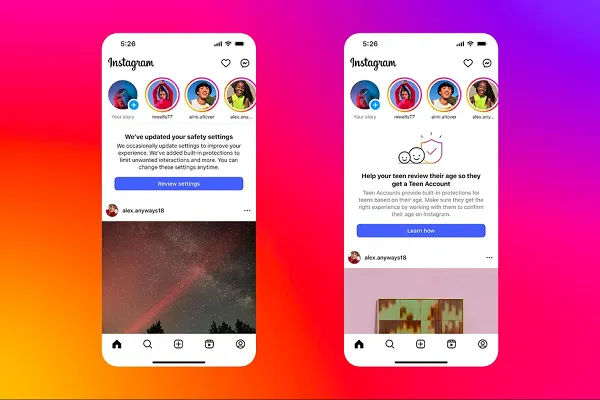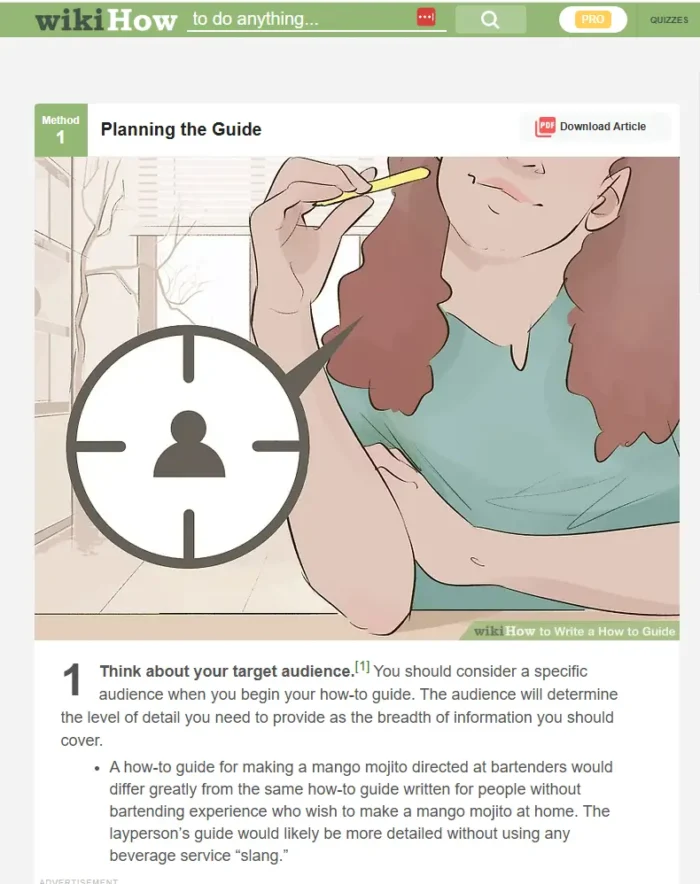How to Avoid Back Surgery After Your Doctor Recommends It | Chad D. | Better Man Podcast Ep. 109
About 12 years ago, today’s guest, Chad, pulled his back out like never before. He was bedridden for four days. He couldn’t walk properly for weeks. And when he went to his doctor, his doctor told him: He had...

Episode 109: How to Avoid Back Surgery After Your Doctor Recommends It - Chad D - Transcript
Dean Pohlman: Hey guys, it’s Dean. Welcome to the Better Man podcast. Today is a member interview episode, and I have Chad DeVries here to talk about his health and wellness journey. So Chad, thanks for being here.
Chad D: Thank you. Thanks for having me.
Dean Pohlman: Yeah. So, so the way I like to start these, is to go through kind of your. Oh shit moment. So what happened or what? You know, where were you at in your life when you realized that you needed to make a change?
Chad D: Yeah, I think my my oh, shit moment was probably about 12 years ago. So I’m 54 when I was about 42. I pulled my back. Oh, like never before. Right. So, like, in a way that I was down for the count for about four days, in bed. Couldn’t, couldn’t walk at first. And then when I was finally able to start moving again, it was a slow and hard recovery.
Chad D: What I found out was, I had the back as the doctor set up the back of an 80 year old at the age of 42. Yeah. And I so my, basically my very low dis were both so L5 and L4 were about bulged so far out that they were actually deteriorating where my vertebrae were starting to fuze together.
Chad D: So it was pretty severe. And of course, right away is a lot of people can attest to they go quickly to you need surgery. And I think we all know people have had back surgery and that never seems to. You don’t just do one back surgery, you do multiple back surgeries. So I had that oh shit moment. I can’t do back surgery.
Chad D: I gotta figure this out, on my own. And what what I should be doing and what I also say is, like, the mental impact of that experience for me was, pretty severe because I’ve always been active. But what I would call it, I’ve been haphazard, active, okay, in my whole whole life. So, my mental state got pretty bad in that time frame when I couldn’t do anything.
Chad D: I was way longer than just the four days I was in bed, and that that didn’t help me, at all. So I knew I needed to get get a plan. Like, how was I going to do this without surgery?
Dean Pohlman: Got it. So what did you do?
Chad D: So I, I really focused on core and flexibility. So that was the thing. Like I needed to figure out if I couldn’t, if I, if I could keep my core in tip top shape and also keep the flexibility and exercise that, that would help. My back and that would reduce the inflammation and can be the mobility that I need it.
Dean Pohlman: Yeah. Okay. So this is 2000 is is 2012 when this was happening.
Chad D: Yep. Yep. About 2012.
Dean Pohlman: Okay. Cool. So what did you, what were some of the fitness solutions that you found?
Chad D: Yeah. So I, you know, I would say I continue to be haphazard, okay. For, for quite some time, which, was the challenge. So I started to I actually started to go to a yoga class. I started to and then I did, these the back exercises for my physical therapist. And then I started to do these, like, basically YouTube core video workouts.
Chad D: Right? But again, I wasn’t doing it. Like, I didn’t have a schedule. I didn’t have a plan. I just knew I was supposed to do those things. What I would say is that and the yoga classes, which I had never done before, it didn’t. It was such an effort to like, go to the class. I couldn’t get any of my buddies to go with me.
Chad D: It was I didn’t like laying there and doing the grunting and chanting and all that stuff. So it wasn’t really. And I don’t have a lot of time. Right? Like, I don’t, I don’t I, I’m a father of two. I don’t have time to be, driving to a place and going through an hour long class. So, so I started to, just do random exercises.
Chad D: And it helped, of course, but then, I didn’t I would, I couldn’t get consistent.
Dean Pohlman: Okay. So it sounded like you were just doing enough to keep it from getting terrible again.
Chad D: You okay? Yeah. And then I started to, Keep get a routine. So what I tried to do was, make a schedule, and this is when I started to look more. So now we’re had coming up. Fast forward a little bit till we get to Covid.
Dean Pohlman: Okay. So there was a very long, haphazard period.
Chad D: Yeah, it definitely was, but it was it it was, enough that I wasn’t enjoying myself. I did minor tweaks here and there on my back. But it was a period where I hadn’t, I didn’t come up with a plan. It was quite frustrating, actually, because because it was haphazard, I would do it. I would then I would fall off the wagon, and then I would punish myself for falling off the wagon and then try to get back on the wagon, feel good for a while, and then fall off again.
Chad D: So it was it. It was also a little bit mentally straining to, be making up, following on and off the wagon.
Dean Pohlman: Yeah.
Chad D: So yeah, it was, it was around Covid. So let’s see.
Dean Pohlman: We’re at 2019 almost 2020.
Chad D: Yeah, yeah. So I I guess it was before before Covid, I started to look at YouTube more for, yoga. I did search yoga for men. Yeah. And because I wanted to focus less on the more more on the core. And that’s when I came across man for yoga, YouTube videos. And I would say I just started to use that for, for some time.
Chad D: Just doing some of the YouTube videos there. And that helped me, become more consistent, less, less haphazard, because I really enjoyed that more. It was super convenient. I could do it, when my kids were in bed. I could do it quickly in the morning. So that really helped me focus on my core and my flexibility.
Dean Pohlman: Got it. So how quickly did you, you know, was there a difference between doing the haphazard workouts before that and then finding manual yoga and doing that, or like, was you what enabled you to I guess I’m curious, were you more consistent with mental yoga and was there a reason for that? There was.
Chad D: Yeah, I definitely was. So what I would do is, I was able to get a routine in place where I would either, do like every night before I’d go to bed. So make the ten minute unwind. Was the big thing that got me going with man flow yoga. I would do that every night before I’d go to bed, because then I knew in the morning it was much easier to get out of bed.
Chad D: Right. So and that was not a huge time commitment for me. It’s like life goes to bed. I’m just like on the floor in the bedroom, lay down, do the ten minute unwind. And it just gave my back that relief so that when I woke up in the morning, I could go to bed. So I started do that.
Chad D: I did that every day. So that was where, I didn’t that was less haphazard for me, I would say. Then when I.
Dean Pohlman: How long did it take you to notice that the, that ten minute unwind was working.
Chad D: So pretty quick? I would say like within within a week for sure. Because, you know, sometimes I just wake up and you’re so stiff. And the challenge that I would have is I couldn’t straighten my pelvis when I woke up in the morning. So if I didn’t do that unwind, I would kind of be a little bit, my pelvis would be forward and I couldn’t do it until I walked it out or walked it through.
Chad D: And so it was super painful. So just doing that one thing consistently helped relieve, the pain in the morning or that that stiffness in the morning. What I say wasn’t do where it wasn’t it was it wasn’t building strength. And that was my next goal of like, how do I build strength in my core and help my back so that I still felt like I was on the edge, a little bit of like, and when am I going to tweak my back again?
Chad D: Yes, I still have it. I may tweak it on occasion, but never to that same level as an 2012.
Dean Pohlman: Got it. So what was the next, what was the next step?
Chad D: Yeah. So I think the next step was I did join manfully. Okay. No, no, actually this is what it what was the real trigger for me was, the first, I went to be the better you weekend with man flow yoga before I even became a member. Actually, I hadn’t even joined man for yoga. I just knew about it through YouTube, and I saw that.
Chad D: And it was. I was in a, quite a state where I was like, you know, I consider myself the caretaker, the fixer. Right. And, as a lot of people can be and never taken care of myself. Right. And so I saw that opportunity as, like, wow, that’s really cool concept of what I’m going to take this time.
Chad D: Fly to Austin, spend three days focusing on me. And so I would say that was a pivotal change for me because it gave me the, I guess like my way. I talked to my wife and I’m like, I need to do this for my own mental state and to make me, focusing on myself and my own growth to make me a better father, husband, worker, employee, etc..
Chad D: So I.
Dean Pohlman: Didn’t do anything like this to this.
Chad D: Point. Never, never.
Dean Pohlman: Was she like, what are you talking about?
Chad D: No, I she did. Yeah, a little bit. I mean at first a little bit like, You’re going to go to a yoga.
Dean Pohlman: Retreat like.
Chad D: Like.
Dean Pohlman: So no no no, no, it’s not like a yoga retreat. It’s like, who does yoga? But it’s not a yoga retreat.
Chad D: Exactly. Yeah. So I think, I think for, for her, she, she got it. Or she could see like, oh yeah, I think if you, you take some time for yourself. High stress in my household my son was, was is super challenging. And we were we were going through a lot and so she’s like, yeah, I think it would be good for you to take the break.
Chad D: So I’d never done that before, right? I always go to fixing, fixing, caretaking, taking care of everybody else, but never focusing on myself. So that was the first opportunity where I took that step back, disconnected quite a bit and got to focus on myself. That’s where I first started to make a plan. Right? Okay, so, and a plan that started to learning the skills to make a plan, right.
Chad D: To make them to make a schedule. So I felt like I never made up a schedule. And so I always felt guilty when I didn’t work out, so I would I and knowing that I didn’t have to work out every day, or if I just make a plan and follow that plan, then I can, get consistency and not feel bad on a rest day that I’m not doing anything.
Chad D: So that’s when I started to. I so shortly after that, I joined mental yoga. I started to, programs. So I had like, I’m like, okay, I’m going to do yoga on Monday, Wednesday, Friday. And then I would sometimes do Saturday or Sunday, still doing my ten minute unwind. But that’s been consistent for me. But then start.
Chad D: So now I wanted to build up some more strength. And then I also got consistent with my, weight training. I would say weight strength training. Not not that’s not a lot of weight, but I was always scared to do, too much legs or squats or things like that because of my back. And so yeah, I was able to combine that with the yoga because I started to feel more confident in the strength of my core and my back.
Chad D: And so then I would make that schedule, and that really helped overall.
Dean Pohlman: Okay. All right. So you you make the schedule and you just you just start doing it and you just started doing it consistently. And that was it. Or like what happened.
Chad D: No, I wish it was it. Yeah. Yeah. It wasn’t it. You know, I think it’s constantly, constantly I struggle to stay on the wagon, as I say. Yeah. You know, when I’m on, I’m on. Like, I can be when I’m. When I’m exercising, I’m eating, well, super healthy. But then as soon as I fall off, then I fall off for a while, like, I always like.
Chad D: It’s like a drug addict, right? Like, could do it really well. Yeah. Then you have an episode and no drugs involved. Just for the record. But I, I would fall off and then I would feel guilty about it. And then I have to figure out my way back up. And so I tried to figure out new use, new programs, in mental yoga or, and also trying to educate myself more on strength training and creating a plan there as well.
Dean Pohlman: Yeah. So what are you. And I think it’s really first of I just want to normalize falling off the wagon. It’s something that I talk a lot. It’s something that I, something I talk about a lot, on social media, and also in our members area, in our community. But it’s also something a ton of people experience, like there have periods where things are going well and, and then all of a sudden they wake up and realize it go.
Dean Pohlman: I haven’t really been on it for a long time now. So it’s normal to fall off the wagon. So what helps you stay on the wagon? Do you do you notice certain things?
Chad D: Yeah, I think, seeing results. And so like a motivator for me is physical appearance. It is what it is like. I like to look good. You are human, right? And it’s look good. Feel good. Right. So what I would say is, I feel there’s a very direct correlation to your physical activity and your mental health.
Chad D: So when I would fall off the wagon and that usually led to eating more junk food, just, I have a great sweet tooth. So I’d be eating all the cookies, like, and just that would not help me mentally. So I, I was always motivated to figure out, okay, I just got to get back. I got to figure out the plan so that I can be mentally, in a better place and physically a better place.
Chad D: So, like, I evolved my motivation from saved my back to look good, feel good. Okay, that that gave me, that gave me more the ability to to jump back on the wagon more quickly and to stay more consistent because I was motivated by that. And I knew when I was off, my how I felt, felt a little depressed, was you just, just didn’t have the same energy level.
Chad D: And so that’s why it helps for me to be consistent.
Dean Pohlman: Got it. Yeah. So.
Chad D: I learned I had high blood pressure, too. Like that happened at the same time. I’m like.
Dean Pohlman: What the hell? I have high blood pressure.
Chad D: Like, I feel like I’m a, healthy guy. And so, you know that the doctor said, okay, you have high blood pressure. You need to this is, I think, their generic response. But, because he sent it to me, an email. You need to lose weight, eat healthier. And I forgot the third one was.
Dean Pohlman: I could take a statin. Yeah.
Chad D: I was like, no alcohol. And, and I was like, you know what? But, like, I don’t need to lose any weight. I eat pretty healthy. And so it was very confusing to me that way. And of course, there’s hereditary things in there too, but it was also another motivator for me to start increasing my cardio. Right?
Chad D: Because I was not. Cardio is not fun for me. I don’t enjoy cardio. I can do cardio if I have a goal, meaning like a race, I’m going to run A5K or I’m going to do a sprint triathlon or something, then I can do it. Otherwise I don’t enjoy running. So that helped to motivate me to, you know, I don’t want to have a heart attack and, you know, see it happening.
Chad D: I mean, I’m 54 now and like I want to be around. So that’s definitely part of my motivation as well.
Dean Pohlman: Gotcha. Okay. So you had so you were right about to turn I don’t know if you recognize this consciously, but I’m doing the math and recognizing it. So you were about to turn 50 when you started. Yeah. You got more consistently.
Chad D: Yeah.
Dean Pohlman: Yeah. Did you know. Yeah.
Chad D: It’s like, no, I don’t think I realized it. And so much like I always said, like I didn’t have a midlife crisis and I’m like, oh yes, I probably did. Right and live.
Dean Pohlman: Crisis right to intuition. I years ago.
Chad D: You know, I was supposed to get a tattoo in Austin at the first, the first be the better you I even or I interviewed a guy when I was there and I was going to get a tattoo, and then it then Covid hit, and I couldn’t get up anyway. Yeah, I would say you do. I would say I have, yeah.
Chad D: That was like, I’m again, I guess that’s my second oh shit moment. Right. And now that you say that like, yeah, my back was oh shit moment. And then like, I’m 50 like, this is crazy to think about being 50 and how. And then I start to like, I get told I have the back of an 80 year olds.
Chad D: I’ve been working on that I out, I have high blood pressure. I did go through a stint of antidepressants, like I don’t. I was like that how? It’s crazy to me, but I just didn’t know what was the pressure of life and work and I. But I kicked it. I didn’t like it. I didn’t like what it how it made me feel.
Chad D: I realized that there are other things you can do to help with that, with the feelings of depression. And so I did, get myself off of that. But it was, I guess that was all around my, four years into my midlife crisis. But I feel like I’m getting it. Yeah. Control.
Dean Pohlman: So, so I’m trying to better understand. So for the last kind of five years, has it been falling off the wagon, getting back on the wagon? Have there have been periods where you’ve. Are you is it like 5050? Is it like 7030 or like where would you say it is.
Chad D: Yeah, I would think it’s definitely higher for sure. It’s like 7030, maybe even 8020. Like I feel like my, my frame of mind is good. I feel like I have, support. So I had the conversation with my wife about focusing on before the Be the Better You, which opened a whole conversation of I need to take care of myself so I don’t feel guilty when I say on Saturday, I’m going to go for a hike or I’m going to the gym.
Chad D: Right? When? Before, since I was working 50 hours a week in the office and my wife would be home, that I would feel like on Saturday and Sunday I’m like super day at 125% at the time, right? But now we started that conversation that actually I need a break for this amount of time on the weekend because I don’t really like going to the office.
Chad D: It’s not necessarily a break, it’s just a different stress. Right. And so I opened that door, and had I’m able to have the conversations to with my wife to get permission to take care of myself and, you know, I don’t say I don’t need permission, but I do.
Dean Pohlman: I understand what you’re saying. And I think.
Chad D: A lot of that.
Dean Pohlman: Yeah, it’s like you need the you know, you need the you don’t need it, but you would appreciate the blessing.
Chad D: 100%. Yeah. Like I want the blessing because I don’t I appreciate, like, being a parent or being being at home with a kid 50 hours while I’m at the office. That’s hard work, right? So I, I always am like, I’ll take over now. But I realized that I do want that validation of, like, I’m going to come back after my workout and I’m going to be 100% engaged with my kid, and I’m going to be more fun and better and not and less distracted.
Chad D: And so that was that was a key thing.
Dean Pohlman: Yeah. So, you know, you’ve, you’ve gone through this I keep on going back to this on wagon off wagon thing. I’m glad that this also you know, that mind shift, the mindset shift of going from, okay, I feel guilty about taking care of myself too. Hey, like, I don’t want to feel guilty about feeling, you know, about taking care of myself.
Dean Pohlman: I want to feel good about this. So do you. Do you have certain? Do you recognize the pattern of falling off the wagon?
Chad D: I do, I think that like, I would, I would tell people or say, what I would say is I was raised on guilt. Right? So I feel there’s a religious background there. Anyway, I’m a preacher’s kid, so I was raised on guilt. Never, never given rules set. Hey, we’re not going to give you a curfew. Just just come home at the right time.
Chad D: I’m like, oh, man. Like, I feel guilty if I stay later because they’ve been trusted me. Right? So I feel guilt when I fall off a wagon. And I feel guilt when I’m trying, when I want to take care of myself. Right. So trying to get past those feelings of guilt and not punishing myself, is a key thing.
Chad D: So I would say when I fall off the wagon. So let’s say that since I, when I fall off the wagon back to the 20, it’s a quicker recovery, I think, because I do know, I do know the benefits. I do know that I, I have the blessing to take care of myself and to that I’m going to be a better person for it.
Dean Pohlman: Got it. So it sounds like, you know, getting into a physical fitness routine also led to you making some significant mindset shifts about how you view taking care of yourself.
Chad D: Yeah for sure. And I would say the other thing. So I actually I learned this from people about you. We can the things that we haven’t talked about. It’s like the the physical the mental. Right. And so what what when I fall off the wagon, having the mental exercises also helps me to get back on. So there’s two things that, I picked up.
Chad D: So that was in 2019 that I do, somewhat consistently is meditate and gratitude practice. The, the meditate I had heard about I just, I don’t know, same same with yoga. And I’m like meditate. Like that’s just that seemed weird to me. But just having that, time to let my mind stop racing was a key thing that helped with when I fall off the wagon, get back on the wagon.
Chad D: I use my my my meditation, and gratitude. Like, I feel like so much going on, in life and so much chaos and bad things that just just writing down at the end of the night, I couldn’t journal. I’ve tried journaling, I just I just can’t. But I can write down three things I’m grateful for. I guess that’s journaling is the short version, right?
Chad D: So I write down the three things I’m grateful for. And that helps with those off the wagon times to get right back up. It’s a quicker rebound. I think that’s when we talk talking about your focus, I think you have I had to focus as much on my mental health as on my physical health. There’s just I mean, they’re directly correlated, but when the physical part is when I’m off, the mental part helps you get back on again.
Chad D: That makes sense.
Dean Pohlman: Yeah. No, totally. It works both ways. So were there other improvements in your overall health and wellness that you started to make? In addition to the the mindsets?
Chad D: Yeah, I think.
Dean Pohlman: On top of well, let’s go back to you. You talked about you were, you know, you got more consistent with yoga, but you also got more consistent with weight training. Did that happen at the same time?
Chad D: It happened it was later. Definitely later. How.
Dean Pohlman: Did you start integrating, weight training into it?
Chad D: So I created I gave myself, a schedule. Right. What I learned quickly about myself is if I don’t do it in the morning, it doesn’t happen right. And that was one of the things that, I had to give myself that that blessing as well as, like, don’t try to set up going to the gym after work because it’s just not going to happen and you’re going to fall off the wagon more quickly.
Chad D: So getting a routine where I set up a schedule of my yoga Monday, Wednesday, Friday, and I would do that, the programs or I’d run, the strength program, yoga one, that was the one that I did that, that a couple times, actually. I would just do that for, in the morning, and I could just do that at home.
Chad D: Okay. And then I would incorporate the strength training this post. Covid of course. On Tuesday, Thursday. And then I make Saturday and Sunday. We usually go Saturday to the gym as well. And so I just did that to create like that was the plan. And when I had the plan, then I didn’t feel guilty on Monday if I didn’t go to the gym because I did my yoga in the morning, I know I’m going to the gym on Tuesday and that’s I think for me that was key because like I said earlier, if I felt like I if I didn’t have a plan, I just would feel bad at the end of the day
Chad D: of like, I didn’t do anything right. And so now I’m tired and I don’t feel good mentally. I don’t look good physically, and that would always get to me that way. So coming up with the and the plan and trying to stick with it, you gave me permission when when I came home from work not to do anything.
Chad D: Right. Or just to focus on my family.
Dean Pohlman: Got it. So what are some other benefits you noticed in addition to, you know, the back feeling better and did you did that routine help you sleep better. Was there you know, did you start to do did you start to look better. And you know what did that look like.
Chad D: Yeah, I would say, the what the unwind for sure has helped my, my sleep. Because like I also I consider the unwind meditative as well. Right. Like when I’m, when I’m doing the like, particularly the back laying on my back and then ending that way. That’s usually what I complain with my, my meditation or flows into my get into bed.
Chad D: And I do this body scan meditation. That would help for sure. With my sleep.
Dean Pohlman: And your, your meditation. Do you do, what’s your meditation look like? Is it self-guided? Do you follow an app or what is it.
Chad D: No I well I don’t I do declutter, declutter the mind actually from YouTube and the thing that I, that I do all the time is the body scan. It’s like when you just lay in bed and they’re like, you take a few deep breaths and then you focus on your feet, your knees, and you go up, up your body.
Chad D: And what I would always tell to my wife, I would say like, oh my gosh, I never like, I’ve never gotten to my head, right? It starts at my feet. And so usually I will fall asleep, before I do the full scan. I know when I’m when I’m super stressed out or it’s not helping me. That’s the times when I can go through the body scan two times.
Chad D: Right. That’s those are extremes. Normally what I would say is yes, unwind the meditation quick or I would do gratitude, unwind meditation and then I would sleep a lot better. So definitely a benefit I saw was sleep energy level for sure. Yeah. And have abs like I’m like I’m 54 and I can like I can see my app.
Chad D: So that’s pretty cool. That’s cool. So those I definitely feel the benefits and I just feel like I’m a nicer person to my family. Right. Like, I one of the things with that stress level in my house, the challenges, with my son, I would be I have a temper. Right. Like, I like I, I lose my temper a lot less when I’m because of this, the work that I’m doing, the consistency, and the focus.
Chad D: I think that’s a huge, huge benefit as well.
Dean Pohlman: Yeah. All right. So how is, community been helpful to your overall health and fitness?
Chad D: Well, 100% like when you’re off the wagon. The community’s the thing that really lifts you back on it. That can be a big player in that. So like the, I think like I look at I used community in two ways. One is like, can I get somebody to do a race with me so that we actually will go train together?
Chad D: And something, on the mantle yoga community is the key thing, too. When I’m, I like to be able to see other people struggling the same way I’m struggling. People that do fall off the wagon, Get back on when I’m when I see people posting pictures or saying asking questions, it makes me. It reminds me like, oh yeah, okay, I got to get like, get back to this.
Chad D: I think it’s a good community is important for encouragement. And for that, that approval, I guess if when you’re, when your fall off and to get back on.
Dean Pohlman: Yeah. I mean having I think what you’re saying here is having other people say, hey, you fell off the wagon. It’s okay. Yeah. You know, oh, I did right.
Chad D: And seeing and seeing other people do it like it’s normal, right. Like, I think it it normalizes a lot of the challenges that we have. And being able to talk about it is not something that we guys do very well. And I think that’s that’s changed. But I think having community that you can actually talk about those things, talk about mental health like I feel like Covid all of a sudden gave us all this, this permission to be like, yeah, I’m losing my mind.
Chad D: And, you know, it’s not it’s not very manly, but I think I’m depressed. Right. And but but then we open the door of like, no, we can we can actually talk about this. And to not have to feel ashamed. I’ve experienced I actually have experienced, friends who have committed I have two friends have committed suicide. And I’m like, because we just didn’t talk about depression.
Chad D: Right. And I think it’s so important that if you’re feeling that way to be able to talk about it. So I think community is a key thing. We’re not none of us are in this alone.
Dean Pohlman: Yeah. You know, I’m reading a book right now, but it feels relevant to mention it. The book is called, I think I would, it’s called, but it’s basically the power of self expressive journaling. Something like that. But there’s, I’m only like one chapter in, but there’s a section that I’ve covered already that talks about the immense relief that comes from saying things that you’re not saying, you know, just like talking about things.
Dean Pohlman: So a lot of people are like, wow, you’re so like, I don’t know how you say things that you do on a podcast to everybody. I’m like, because it feels better when I do write, you know, because I get this weight off my chest. So there’s less stress when you, you know, when you talk about the things that are bothering you, it’s like, you know, I’m not doing this just because I’m like trying to be an example.
Dean Pohlman: It’s like it actually makes you feel better when you talk about the things that are bothering you. It gets it out of you.
Chad D: Like, is it like you can like you can feel your shoulders like all of a sudden go down, right? Like you’re like, oh my gosh, I have this huge weight. And I just let it go. And I agree 100% saying things can make such a huge difference. Yeah.
Dean Pohlman: So what’s the next thing in your fitness journey? What’s the next goal you want to.
Chad D: I, I think it’s cardio. I worry about heart. I, I were in the cart. Like I said earlier, cardio is not my favorite thing to do. I do, you know, I, I feel like my back. I like the good story here is to. I have been I have not been flat on my back. I have tweaked my back, but I haven’t been ever the way I was in 2012 and I haven’t had to have surgery or do anything like that.
Chad D: But I think my next thing is to figure out cardio because I worry about high blood pressure. I, I worry about my heart. I worry about those things as I am about 55 in a month like that is just crazy to me to think about that. And so I think that’s next. And then I think mindfulness, like I always trying to think about other mindfulness opportunities, you know, I used to I, I’ve done therapy for, for some time and I fell off that wagon, you know, and I and, just because of scheduling and travel and work and I just did and, but I do think there’s value.
Chad D: There’s huge value in going to therapy. It’s a little bit like you can you can let things out in a podcast, but like, you can also let things out. And if a therapist and that way makes it.
Dean Pohlman: Yeah, you you don’t have to let it out in a podcast. You can like look at. Yeah, I’m not in a therapy setting. Yeah. Probably appropriate. So.
Chad D: Yeah. But yeah, I think that’s that, that’s key to me. Like, I think that you don’t, I, I feel like my state right now is pretty good over the last, five years, however, it still fragile. It’s always fragile. Right? There’s always there’s so many pressures. And I feel like going to therapy. You don’t just go to therapy when the pressure explodes.
Chad D: You go to. You should go consistently to be ready. So you’re fully prepared for that next crisis that happens. Or when you are, when you do fall off the wagon. And so that’s one thing like say, my goal in mindfulness too is to get back to therapy. Consistency and talking and, communicating feelings with my with my spouse with, with other guys too.
Chad D: Like, I, I have like going out for a beer and actually talking about your feelings and, it’s weird, but I think it also, opens a lot of doors, and people need it too. Right? So I think I, I there’s there’s some guys who don’t like it, there’s other guys who it’s like, oh, wow. It’s kind of a kind of a relief.
Dean Pohlman: Yeah, yeah. True. All right, so into our rapid fire questions, this is the this is the fun section. So what do you think as one habit, belief or mindset that has helped you the most with your overall health and wellness?
Chad D: Yeah, I think it’s I think it’s that know, knowing that I’m important and it’s important to focus on myself.
Dean Pohlman:
Chad D: That that mindset of what the being the caretaker and fixer all the time is exhausting. And knowing that it’s okay for me to focus on me is, in the end, everybody around me, it’s going to be better and I’m going to be better. So I think, yeah, that was a big mindset shift for me. That gave me the permission.
Chad D: I felt like I needed.
Dean Pohlman: Yeah, perfectly perfect, said. So what’s one thing that you do for your health that you believe is often overlooked or undervalued?
Chad D: Right. Well, I definitely would say, gratitude in meditating. Right. Like, I, I think the impacts of that is so much bigger than even I realize, with my attitude and my, energy and ability to get things done and just I it’s so hard to rest your mind. And I think that is actually a good way to to rest your mind.
Dean Pohlman: Yeah. What’s one thing I heard you ask that? What’s the most stressful part of your day to day life?
Chad D: Like job, job, job and and family. And balancing that and balancing challenges. I think is the that’s probably the biggest pressure. High pressure job.
Dean Pohlman: Not pressure job. What’s your best piece of advice for men who want to be healthier?
Chad D: I would say just start. Don’t feel guilty. You’ll fall off the wagon, get back on the wagon. Right. Like I think there. You have to give yourself grace. Through the process, you have to know that you are going to stop. And that’s okay. And there’s other people that do it or have a similar experience. So.
Chad D: So find your community and just get going.
Dean Pohlman: Okay. All right Chad. Well thank you for doing this I appreciate you. It’s it’s been great having you as part of the community. Yeah. We’ve we’ve met multiple times now obviously.
Chad D: Yes. I appreciate you, Dean. I appreciate it, man. For yoga. It’s, Yeah, it’s just been, great. It’s just provided me with the consistency. And like I would say of the last four years, that’s where I am most consistent, right? That I. I can always go to find a quick workout to do, and I can it can be the ten minute unwind or it can be like more of a strength.
Chad D: Like I love when the bars the red bar, I’m like, okay, this is going to be right. I’m like, this is going to get me good. And it does. Right? And then I feel really good. But then there’s other times I’m like, ha, I just gotta get my back moving. I need that green, I need that, and that’s going to be more of my meditative, and focus time.
Chad D: But yes. So thank you.
Dean Pohlman: Deep cool. All right guys, listening and I hope you enjoyed this episode. Thanks for listening and I hope it inspires you to be a better man. I’ll see you on the next one.
[END]

 Konoly
Konoly 































